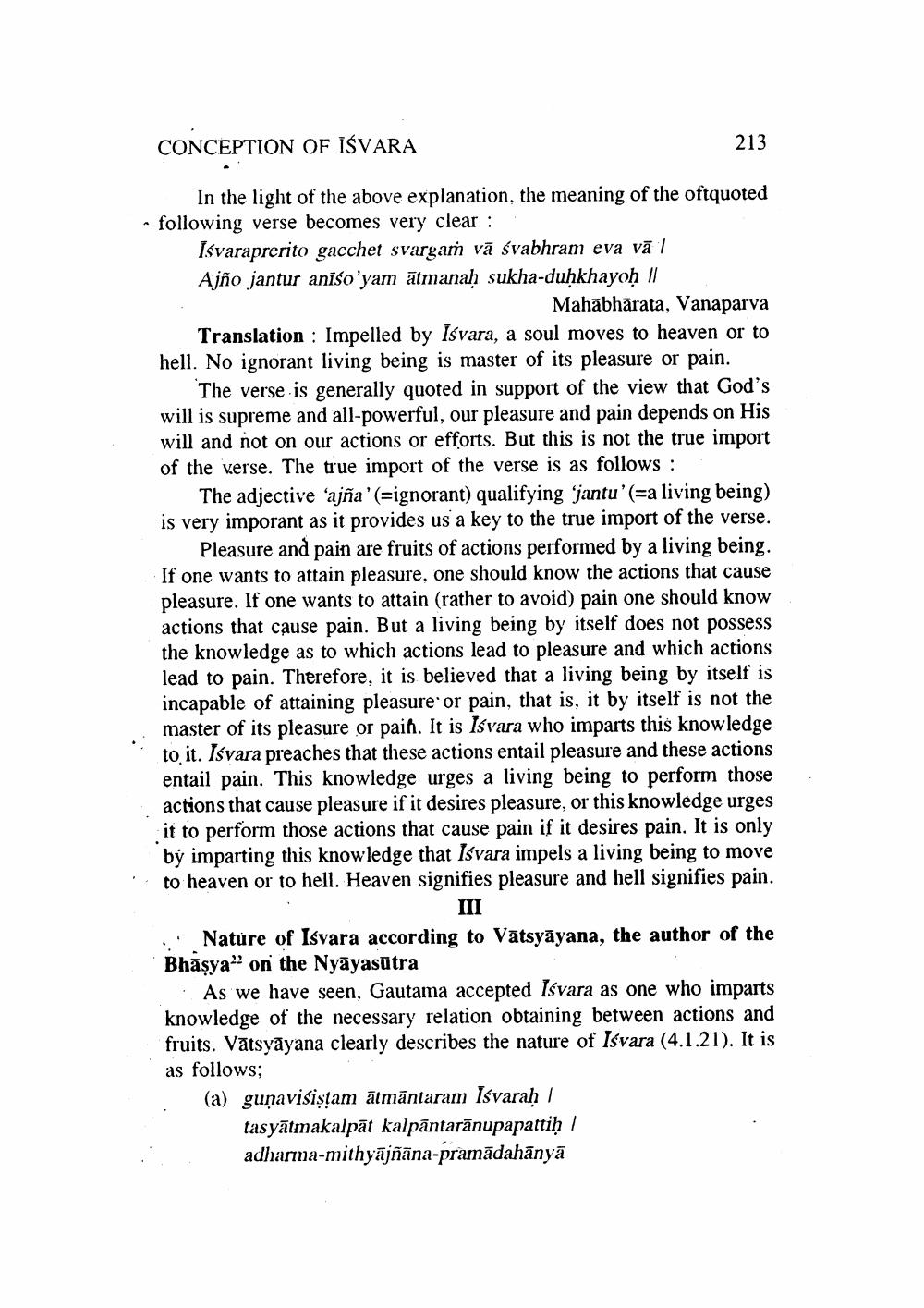________________
CONCEPTION OF IŚVARA
213
In the light of the above explanation, the meaning of the oftquoted - following verse becomes very clear :
Isvaraprerito gacchet svargam vā śvabhram eva vā 1 Ajno jantur aniso'yam ātmanah sukha-duhkhayoh ||
Mahābhārata, Vanaparva Translation : Impelled by Isvara, a soul moves to heaven or to hell. No ignorant living being is master of its pleasure or pain.
The verse is generally quoted in support of the view that God's will is supreme and all-powerful, our pleasure and pain depends on His will and not on our actions or efforts. But this is not the true import of the verse. The true import of the verse is as follows:
The adjective ‘ajña'(=ignorant) qualifying jantu'(=a living being) is very imporant as it provides us a key to the true import of the verse.
Pleasure and pain are fruits of actions performed by a living being If one wants to attain pleasure, one should know the actions that cause pleasure. If one wants to attain (rather to avoid) pain one should know actions that cause pain. But a living being by itself does not possess the knowledge as to which actions lead to pleasure and which actions lead to pain. Therefore, it is believed that a living being by itself is incapable of attaining pleasure or pain, that is, it by itself is not the master of its pleasure or pain. It is Isvara who imparts this knowledge to it. Isvara preaches that these actions entail pleasure and these actions entail pain. This knowledge urges a living being to perform those actions that cause pleasure if it desires pleasure, or this knowledge urges it to perform those actions that cause pain if it desires pain. It is only by imparting this knowledge that Isvara impels a living being to move to heaven or to hell. Heaven signifies pleasure and hell signifies pain.
Nature of Isvara according to Vātsyāyana, the author of the Bhāsya” on the Nyāyasutra
• As we have seen, Gautama accepted Isvara as one who imparts knowledge of the necessary relation obtaining between actions and fruits. Vätsyāyana clearly describes the nature of Isvara (4.1.21). It is as follows; (a) gunavisistam ātmāntaram Isvarah/
tasyātmakalpāt kalpāntarānupapattiḥ / adharma-mithyājñāna-pramādahānyā




